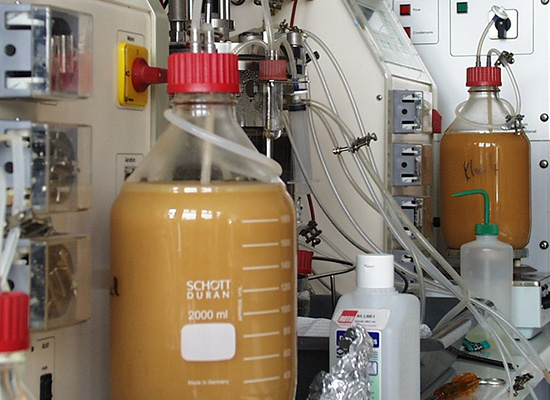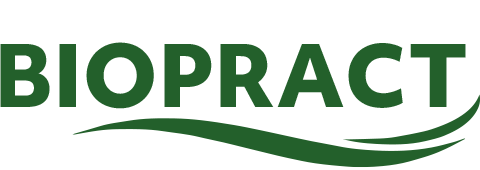Service Provision
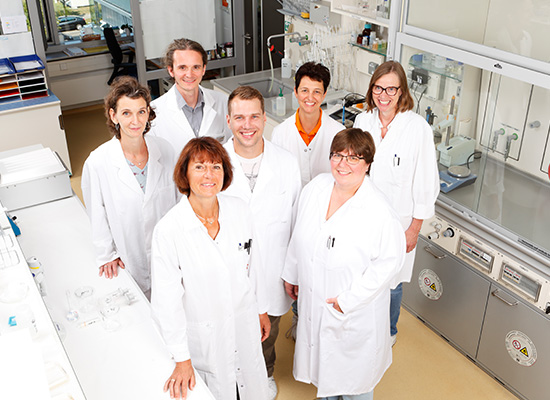
Enzyme analysis for animal nutrition
Since the 1990’s the use of enzymes has become indispensable in modern agriculture, i.e. by improving the digestibility and utilization of feed ingredients, preserving natural resources and minimizing environmental pollution.
A wide range of enzymes, such as Phytases, cellulase/hemicellulase complexes, pectinases, amylases and proteases are applied in the feeding of poultry and pigs, increasingly also of ruminants. Their analytical detection is necessary to ensure the high standards in animal nutrition. In addition, the analytical data serves as a reliable basis for further developments. The recovery of the enzymes in compound feed - a basic prerequisite for their approval as feed additives - is hampered by the comparatively low supplementation levels (100 g/t), disruptive molecules, inhibitors and endogenous enzyme activities.
Since 1996 we have been working on the development of methods to recover enzymes in complex matrices. In the field of animal nutrition, we conduct analytical detection of enzymes exclusively for DSM Nutritional Products Ltd.. The knowledge we have acquired so far, is applied in other areas, e.g. research projects and the biogas sector.
Substrate analysis in animal feed
Knowledge of the presence and content of specific ingredients in feed is of great importance for the choice and development of feed enzymes. For example, phytic acid as the phosphate reservoir of the plant: The addition of phytases leads to mobilization and thus to phosphate savings in animal feeds. The phytic acid content of animal feed and its usability vary due to the composition, the varieties used, the soil quality, the climatic conditions and stress, e.g. due to pest infestation. In order to reliably evaluate phytic acid bound phosphorus in animal feed, the analysis of phytic acid is required to allow an adequate dosage of phytase.
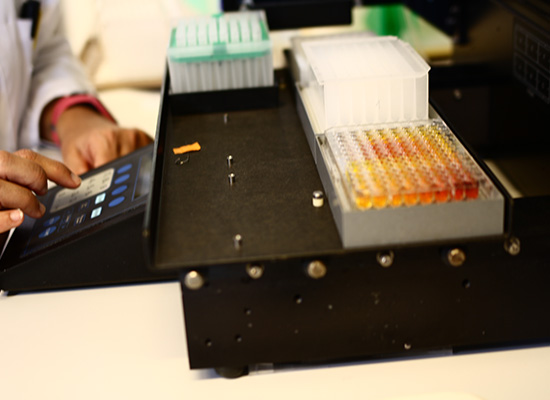
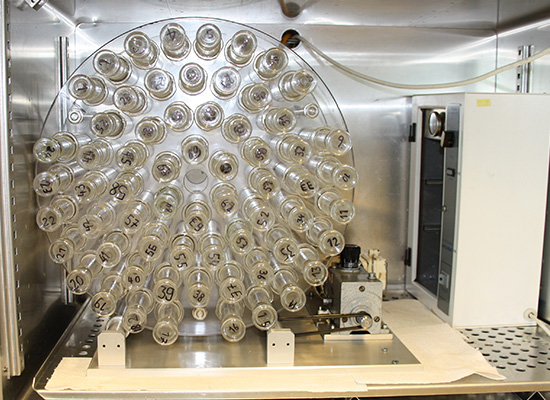
Hohenheim Feeding Value Test
The Hohenheim Feeding Value Test was established in the 1980s to determine the energy content of feed for ruminants. The determination of the gas volume produced on the one hand and the chromatographic analysis of the liquid and gaseous phases on the other hand allow the use of this test, modified by us, as a screening tool for the in vitro investigation of different active substances. This test system can be used to assess both the effects of the substances on the utilization of various feed materials and the effects on methane formation in the rumen. Reproducibility and the significance of the results are ensured by controlled conditions in animal husbandry and by standardized analysis in the laboratory. According to the 3R rule (Reduce-Replace-Refine), the performance of in vitro experiments in modified HFT helps to minimize the number of animal experiments necessary for the development of feed additives for ruminants.
Pattern preparation of microbial biomasses
Production and processing of sample quantities of fungi and bacteria for application studies (2-10 liters, aerobic fermentation) in the S1 laboratory.
